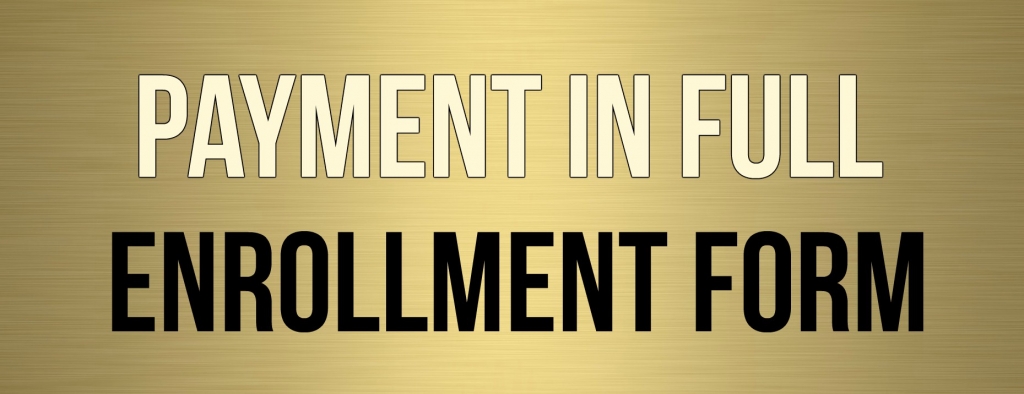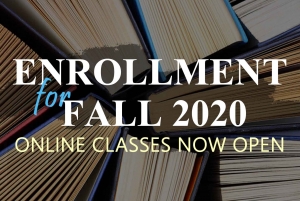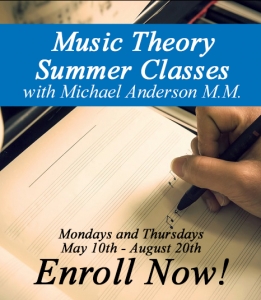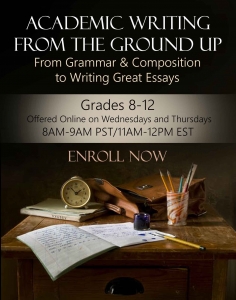Frequently Asked Questions
What is the Academy Greats Honors Program?
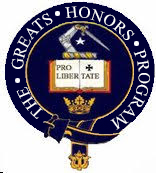 Since our founding in A.D. 2000, we have aimed at providing our students with the very best-the most excellent education: the greatest books, materials, courses and teachers. This unique, online honors program, combining the Great Books Academy’s Great Books Program and Wondrium™, completes that goal, and is, we believe, an unparalleled educational program.
Since our founding in A.D. 2000, we have aimed at providing our students with the very best-the most excellent education: the greatest books, materials, courses and teachers. This unique, online honors program, combining the Great Books Academy’s Great Books Program and Wondrium™, completes that goal, and is, we believe, an unparalleled educational program.
At the University of Oxford and some other universities, the undergraduate course of study focused on the classics of ancient Greece and Rome is titled Literae Humaniores (human literature, concerned with human learning-the humanities). It consisted of detailed study contrasting the great works of classical civilization and their great heroes, philosophers, scholars, seers and sages with modern ones, so the course was colloquially called simply Greats.
The Great Books Academy’s Honors Program combines the same “Greats”: the finest books by the greatest authors, in it’s Great Books Program, with the finest lectures taught by many of the world’s greatest teachers in Wondrium™.
In this Honors Program students will read the greatest books ever written, selected by scholar-editors led for decades by Britannica’s Great Books Editor-in-Chief, the late Dr. Mortimer J. Adler, and will be taught by many of the world’s finest teachers (selected to teach courses by The Great Courses™ online), who lecture at many of the world’s greatest universities and colleges. Greats Honors students will get access to their lectures via Wondrium™- an online service that contains over 300 courses produced by The Great Courses™, and will have the opportunity to discuss these with fellow students for two hours per week in live, Socratic discussions moderated by two of our experienced faculty moderators. It just does not get any better in terms of excellence of books, teachers, lectures and overall presentation including discussions and tutorials (see below).
In the early days the Oxford Greats encompassed mathematics and natural sciences. Dr. Adler and the Great Books editors added to the Great Books reading list a number of works of the natural sciences and theology. We have followed Dr. Adler’s advice regarding use of the chronological ordering of the Great Books readings: “In choosing a set of readings for a sequence of seminars, no attention at all should be paid to the field of subject matter in which the materials fall. A haphazard chronological ordering of them is much better than any attempt to order the materials so that they cover themes or topics in a particular subject matter.” Additionally, Honors students will have ongoing opportunities to meet online, live with their Academy mentor (September-May) to discuss and ask questions about the Great Courses lectures they have watched, and with tutors expert in various subject areas, and with fellow students. The mentor will have the student’s papers and weekly test results available so that they can privately monitor the student’s academic progress, provide friendly support and direction, encourage students to develop their full potential, and so they can send monthly progress reports to students and parents. The tutorials take place live, online, sometimes with fellow students taking the same courses at the same time, and will also help ensure students do not fall behind and are given some individual help if needed. At the University of Oxford these meetings are called “tutorials,” at Cambridge they are called “supervisions.” Both terms convey something of their purpose, which treat of individual subjects in more detail than do mentors or in the interdisciplinary Great Books courses. One benefit of the tutorial system is that students may receive direct feedback on their weekly work in a discussion setting. As a pedagogic model, the tutorial system has great value because it creates learning and assessment opportunities which are highly authentic and difficult to fake. This relieves parents and administrators of the difficulty of attempting to monitor and assess their student’s studies. An example of an Oxford tutorial (in this example with just one student –Oxford has multiple-student tutorials as well) may be viewed here. What is Wondrium™? Wondrium™ is a subscription video on demand service by The Great Courses™ – the leading global media brand for lifelong learning. With 300 courses of in-depth videos by the world’s greatest professors, students will always have something fascinating to learn about. The Greats Honors Program uses and assess about 30 of these courses in its program, however Greats students have access to all of them. There are never any commercials no matter how much students watch, and they can pause, rewind, fast forward or re-watch as often as they like. What is the difference in the Greats Honors Program and the traditional, Academy Homeschool program? The Academy homeschool program (HERE) begins at the nursery level and continues through the 12th grade, in the usual homeschool approach, offline,with some optional online courses. The Greats Honors Program is entirely online, and is not offered prior to the 9th grade level. Our online Great Books Program (the required reading is of course done individually) is common to and part of both our Homeschool program and our Greats Honors program, 9th-12th grades and up. So apart from the Great Books Program, the difference is mainly about taking courses offline, or, online with lectures, assessments per lecture, individual mentors and tutorials, and monthly progress reports. Many high-school-age students enroll in our online, Great Books Program, which is fully described on this website under the tab of that title. Though the Great Books Program is interdisciplinary (and the books include much literature, philosophy, history and political science-often contained in the same book), they do not include specific, systematized courses in math, the natural sciences, English language arts, music, art, or foreign languages. To take those specific courses students may either enroll in our homeschool program which is not online, but is done at home, offline, in the usual homeschool manner (with some optional online courses available), or, now they may enroll in the Greats Honors Program, which provides all of those specific courses online. Both approaches offer all courses that are required for an Great Books Academy diploma. Greats allows students to view specific online course lectures in categories of math, science, philosophy, history, English language arts, art, music and philosophy, foreign languages. See curriculum chart HERE. The diploma for the Greats Honors program identifies the graduate as a Greats Honors Program graduate and is sealed with the Greats Honors Program seal: For what grade levels is the Greats Honors Program designed ? 9th -12th grades (age 14) and up. Do not let the fact that it includes some college-level lectures mislead you into thinking it is not for high-school-age students beginning in 9th grade–it is designed for them. Dr. Mortimer Adler long ago (beginning in the 1920’s) noted the decline in American education, and proposed a return to the study of the Great Books and the Socratic (conversational dialectic) method of studying them as two of the major parts of the remedy. He also noted, over many decades of observation and experiment, that teenagers, after the substantial completion of their education in the learning/liberal arts in elementary/primary school through 8th grade (learning reading, writing, speaking, listening, calculating, problem-solving, observing, measuring, estimating and exercising critical judgement), are thereafter able to use those skills to study and profit from the study of the greatest books and the great ideas contained in them. We have an extensive article on this point HERE. This clearly holds for excellent, well-prepared lectures, such as the Great Courses lectures, as well–lectures taught by enthusiastic, great teachers can obviously add much to a student’s learning experience. There is no point is reading books or listening to lectures that we fully understand and which do not stretch us intellectually. The corollary in that it is a waste of the time and minds of teens not to expose them–not to familiarize and acquaint them–with the greatest works and most profound ideas. “Learning, neglected in youth, loses the past and is dead to the future” – Euripides. Not at all – it’s the materials, the books, the lectures, the teachers, that need to be the best, in order to bring out the best in all of our students. The educational culture in which students are immersed strongly influences their subsequent intellectual growth and development. This was Dr. Adler’s point in the above quotation cited: the best education is not just best for some students, it is best for all students. “In the early 1930s, University of Chicago President Robert Hutchins was asked whether Great Books seminars, then open only to a picked handful of students, should be accessible to all the students in our colleges. His brief reply was crisp and clear. He said that the Great Books seminars in our public schools and in our colleges should be open to all the students there, not only to the few who select them or are specially selected.” – Mortimer J.Adler How can parents keep track of their student’s progress? One benefit of the mentor/tutorial system is that students may receive direct feedback on their weekly work in a discussion setting. As a pedagogic model, the mentor/tutorial system has great value because it creates one-on-one learning and assessment opportunities which are highly authentic and difficult to fake. Each month the Greats Honors student’s mentor will email both the students and parents reports of the student’s progress including all lectures viewed and assessments submitted with results (i.e. usually grades). This relieves parents and administrators of the difficulty of attempting to monitor and assess their student’s studies. An example of an Oxford tutorial (in this example with just one student –Oxford has multiple-student tutorials as well) is linked at the end of the first FAQ. This is a logical question, the answer to which we have given a good deal of thought and research. In addition to the truly excellent and concise Wondrium ™ lectures by some of the world’s finest math and science teachers for each subject – they know these specific subjects and what students need to understand about them incredibly well and teach that with great enthusiasm and clarity–for each half hour lecture we offer either quizzes or tests, and we also have labs (both virtual and in-hand physical kits-students may chose either or both), together with reference to the online course Guidebooks prepared by each Professor giving the lectures. We also provide additional online resources such as direct links to, for example, the Khan Academy lectures, and similar resources that discuss the same or similar concepts from different perspectives, for assessing and strengthening our students’ understanding of the material, if needed. Our students may also watch the lectures a second or third time, or more, or parts of them, as needed–an advantage not available in schools. Each course is carefully laid out in a course syllabus, with easy to navigate assignments and assessments on our Online Learning Center. Each course is self-paced, although we recommend a completion schedule. To complete each course in the recommended time of two semesters, students will watch 1-3 lectures per week per course for 28 weeks and complete the corresponding quizzes, practices and labs. There are typically 2-4 additional weeks set aside for midterms and finals, for a total of 30 weeks per academic year. Progress is reported monthly to students and parents. If a student needs help understanding a concept from one of the lectures, they may ask their assigned Mentor, who will either help them or schedule an online tutorial session with one of our math and science Tutors, to meet online in one of our live classrooms to go over the specific topic and answer any questions or provide any help, resources or references, as needed. Besides all of the above, because many students have used the Saxon math courses prior to joining the Greats Honors Program, with each lecture we provide references to the corresponding Saxon math chapters and exercises relating to each topic in our math courses, so that they may continue to use Saxon alongside the Greats Honors Program if they wish, for a greater measure of continuity or if they benefit from doing extra math problems. This is completely optional, but it may be helpful for some students. May GHP students take the online quizzes and tests over again, and also resubmit papers, for potentially higher grades? Yes. In fact we encourage students doing so, provided only that they establish a history of improvement in doing so. Students need to email the appropriate tutor to arrange a new quiz or test. Papers may be resubmitted without any permission needed. What are the mentors and tutors? Greats Honors Program students will each have an Academy faculty member assigned as a mentor, who will be available (September-May) to the individual student, via email or live, online, to answer questions about the program, courses, lectures or specific learning difficulties and to help them reach their educational goals. Parents are welcome to attend and participate in these. Because Greats Honors students have a broad array of courses they may take, some questions may be outside the area of expertise of their mentor. In those cases the mentor will arrange for consultation (again, via email or in a live, online classroom) between the student and a tutor, more expert in the area of interest (e.g., art, music, math, science, philosophy). The Academy has available faculty expert in nearly all relevant educational fields. Since on occasion more than one student may have the same or similar questions or difficulty, tutors may schedule more than one student for a tutorial to address that matter. Academy mentors and tutors, in any area, are different faculty from the professors who teach and are recorded in The Great Courses™. Greats faculty, moderators, mentors and tutors are not the professors who recorded The Great Courses™. May students contact their mentors and tutors? Certainly. They may contact them by email any time with any questions or to arrange phone or internet time related to their studies. Normally this would be routed through the main Academy email address in case the mentor or tutor is not available for some reason. . Extensive individualized tutoring can be arranged, for an agreed remuneration to the tutor. How does the study time in the Greats Honors Program compare to high school and college? Most high schools require about 5-6 hours of class time per day. It often includes considerable wasted time, but it takes a lot of time nonetheless: 25-30 hours or so of classroom time per week. If you view our curriculum charts HERE, you will observe that typical Greats students have about 6 hours of online, classroom time per week (including the weekly Great Books discussion and Wondrium™ lectures). Our curriculum works more like a college curriculum (particularly one with the tutorials, such as Oxford), with much less classroom time than high schools, and more time for independent reading and study. In our experience at the Great Books Academy–nearly two decades now–we have found that teens 14 and up are perfectly capable of such study, and in our nation’s history did so. Dr. Mortimer Adler’s experience over 80 years led him to conclude likewise (see Article on this point HERE). To summarize: Greats students will be engaged in two-hours of Great Books discussions per week, plus an average of 8 lectures per week (usually ½ hour). That comes to 6 hours of online, weekly class time, plus the Great Book reading and occasional work on essays or quizzes. That is not an unreasonable load at all, for any teen, but it is a serious academic program of study, of the highest caliber using the very finest materials and teachers, meriting the name Honors program. It is neither too easy, and hence boring; nor too difficult, and hence discouraging. “Honors” in education is used in a fairly wide variety of ways as some indication of educational excellence. In our program it refers to the curriculum and the students. The courses in the curriculum are higher level courses not typically available in high schools. These are not merely college preparatory level, but are courses taught by college and university professors, selected for their outstanding teaching ability. 40% of the Honors course credits are available for college credit, having been recommended for such by the American Council for Education (ACE CREDIT) after review, including all eight of the Great Books courses (48 credits).The Honors curriculum includes the full range of intellectual pursuits offered in liberal arts colleges and prepares students for a lifetime of intellectual curiosity. “Honors” here also refers to the Honors student community of intellectually-motivated students, pursuing their interests in liberal education as a part of a community of like-minded learners, including in lively, weekly discussions about the great ideas in the Great Books, supported and encouraged in that pursuit with individual mentoring and tutorials. Here is what the NACAC writes about that: “College Board: The National Association of College Admission Counseling’s annual State of College Admissions survey consistently finds that student performance in college preparatory classes is the most important factor in the admission decision. With this in mind, encourage enrollments in honors courses…even if your student has the impression that only ‘top’ students should take these courses or the fear that taking a challenging course might result in a lower GPA. Advanced level courses are worth the extra effort.” How long does it take to complete the Academy Greats Honors Program ? Normally it takes four years to complete the whole Greats program as the Great Books component of the GHP is normally a four-year program. However, students not interested in taking or completing the whole program may take as little as one course, or one semester. Most students begin in 9th grade and complete the program in four years, however our oldest student was 87, and we have had students of nearly all ages, from about 40 countries, though the great majority are Americans homeschooling or in high school. A few students have taken two years of the Great Books Program simultaneously (e.g. Greeks and Romans, or Middle Ages and Moderns), in order to enable them to complete the program in three or even two years. However, that involves a very considerable amount of reading, study and commitment, so while we allow it we do not recommend it; it also loses some of the benefits of a chronological sequence of readings. The Great Courses may be viewed at any time-24/7- as they are asynchronous (recorded), however we recommend students view them according to the schedule suggested on the curriculum chart, partly so that their mentors, who are available September-May, can keep track of their progress, answer their questions and help guide them to achieve their greatest benefit. However, if a student wishes to binge-watch a Wondrium course in a single week or so, he or she is welcome to do so. The quizzes and tests prepared and graded by the Academy for the Wondrium required in Greats will be posted in a student’s Online Learning Center (OLC) page after their enrollment, and may also be taken at any time or pace thereafter. What is the recommended curriculum for all four years of the Greats Honors Program ? Please see the GHP curriculum charts #1 and #2 HERE. What courses are required in the Greats Honors Program, besides the Great Books Program? Students enrolled in the Greats Honors Program may view any of Wondrium™ – there are over 300 courses offered at this time. However only a select few are required in the Greats Honors Program. Please see the GHP curriculum charts HERE to view the list of courses required for the Greats Honors Program diploma. I am beyond 9th grade – may I still enroll in the Greats Honors Program, and will my other high school/homeschool courses transfer into it and satisfy the GHP diploma requirements? Yes. Any educational level 9th and higher is fine, including adults, provided you complete the remaining portion of the Great Books Program (a minimum of one year), and take or have taken courses substantially equivalent to the required GHP courses,that are high school level or higher. However Wondrium™ may not be transferred in as merely watching the lectures does not provide any means of testing and assessing educational outcomes – those need to be taken within/while enrolled in the Greats Honors Program for that reason. Once enrolled, may I quit the Greats Honors Program at any time ? Of course. Just give us 72 hours notice to terminate the automated payments. After that, there are no further financial obligations. Any payments already received, or received in the 72 hour notice period, are nonrefundable. What happens if I start the Greats Honors Program and do not finish all the courses or work? If a student begins the Greats program, and for whatever reason decides not to complete some of it, that portion/course not completed will, of course, not be posted on their transcript. They may then wish to complete the study needed to earn an Great Books Academy diploma in the Homeschool program, or they may move on to some other program, to which we will be happy to provide a transcript for any studies completed. When a student withdraws, once they notify the Academy (after 72 hours notice–email notification is fine), they have no further financial obligation–no more payments. Can I earn the Greats Honors Program diploma if I do not complete the minimum required courses? Ordinarily, no, unless you received permission to substitute courses you did complete. However, you may still qualify to earn the Academy Homeschool program diploma (see those requirements). Does Wondrium™ satisfy the Great Books Academy requirement for a high school diploma ? Yes. The Great Books Academy requires 4 years of English, 3 of math, 3 of science and 3 of social studies. The Great Books Program satisfies the English and social studies requirements. The rest are satisfied by taking Wondrium™ courses required in those subjects. May I enroll in just the Great Books Program, or in just the Wondrium™ portion of the Greats Honors program ? Yes. The Great Books Program tracks may be enrolled in separately, HERE, as may Wondrium™ w/Academy grading, and assessment, mentoring and tutorials, etc. HERE. May I enroll in both the Homeschool Program for grades 9-12, and in the Greats Honors Program ? Yes, however there would ordinarily be no reason to do so. However if a student wishes to take some course(s) offered offline in our Homeschool Program and in some course(s) online in our Greats program, enrollment in both would be necessary. That would be $195 per year for the Homeschool Program, and $79 per month for the Greats, in addition to the cost of the Great Books track selected (see chart above). May one take the live, online Latin and/or Greek and/or Spanish courses in substitution for the Latin 101 or Greek 101 course? Yes. We encourage students to take our live courses whenever possible. Wwe offer live Great Books, Ethics, Logic, Essay Writing & Composition, and Latin and Greek courses for grades 9-12.. In those cases it is usually also helpful (but not required) to watch Wondrium™ lectures in those subjects,to accompany the live courses, in which case there is no need to take the assessments (quizzes, tests) for those, since the live classes conduct their own tutoring and assessment. I notice that the Academy’s live Ethics and Socratic Logic courses are part of the Greats Honors Program. Are they included in the Greats Honors tuition ? Both Wondrium™ Ethics of Aristotle (12 lectures) and Introduction to Formal Logic (24 lectures), which are not live, are a part of the Greats Honors Program The Great Books Academy does offer similar Ethics and Socratic Logic courses live, online. Greats Honors students may take these two courses either way – live or asynchronously. However the live Ethics and Socratic Logic courses –two of our most lively and popular – meet weekly (on Fridays) for one hour, September-May (30 classes each) and having live faculty online cost more to offer and so have an additional tuition charge, which may be viewed HERE There is no additional tuition charge to take the Wondrium™ Ethics of Aristotle and Introduction to Formal Logic courses. GHP students who enroll in the live Ethics and/or Socratic Logic courses may also view the Ethics of Aristotle and Introduction to Formal Logic courses without additional tuition for those recorded courses as they are part of Wondrium™. Is the GHP accredited? Of the 120 credits part of the GHP, 48 were reviewed and recommended for college-level credit (those being the Great Books courses [48 credits]) by the American Council for Education (ACE CREDIT), and are accepted for transfer credit–in varying amounts, from some to all credits– at various colleges and universities. The remaining courses-all Wondrium™- though taught by Professors, nearly all with Ph.D.s teaching at various prestigious colleges and universities (which institutions are themselves accredited), have not been recommended for college-credit. At the college level, Individual courses are not “accredited”, only degree-granting institutions are. Courses may be recommended for college credit, by institutions such as the American Council for Education (ACE CREDIT). To earn their bachelor’s degrees, our students eventually transfer to colleges and universities. I would like to enroll and begin the Greats Honors Program. How do I begin? You may enroll HERE. If you have any questions or difficulties, just give us a call and we can take your information on the phone and enter it manually. Once you have enrolled, we will send you a password to access Wondrium™, which is included as part of your tuition (so you do not subscribe yourself – we do that for you). The user name is your email address, so please be sure and provide the correct one on the enrollment form. Your Wondrium™ membership subscription will be good for 12 months from the date of your Greats Honors Program enrollment. I would like a hard copy of the Wondrium™ lectures (transcripts) and Guidebook? As a Greats Honors Program student, you have a subscription to Wondrium™. This entitles you to a 50% discount off the regular price for the course lecture transcripts & Guidebook, and free shipping. The discounted price range is from $7.50 for both transcripts & Guidebook (for a 12-lecture course), to $ 37.50 (for an 84-lecture course). Transcripts & Guidebooks for courses with more than 12 lectures and less than 84 lectures would fall between those prices. Regular pricing without this discount would be double, so $30-$75 for both the transcript & Guidebook. Approximately 80% of Wondrium™ courses have both lecture transcripts and Guidebooks available. [i] Adler Memo to Faculty No. 83, Faculty Teaching Excellence Program, The Three Columns Revisited with special attention to the conduct of seminars, p.4 Is the Greats Honors Program only for straight A or top students?
What does “Honors” mean as used in the Greats Honors Program?
Will Honors courses help or hinder me in getting into college?
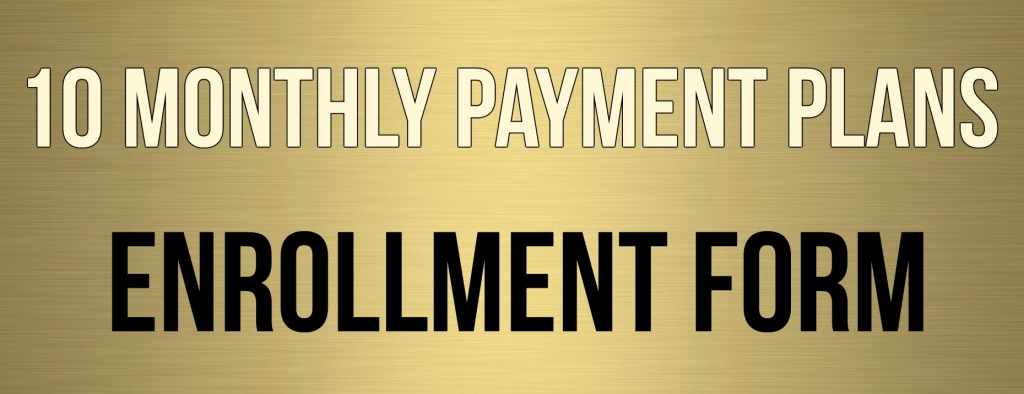
Enrollment Tuition Chart 2023-2024 Annual Tuition Payment in Full 5% Discount* 10 Monthly Payments Annual Tuition for Siblings (20% Discount) 10 Payments
w/Family
20% DiscountPayment in Full (5% Discount) with Family 20% Discount
Homeschool Program
Grades Nursery-K $60 n/a n/a $48 n/a n/a
Grades 1st-12th $300 n/a n/a $240 n/a n/a
Greats Honors Program $995 $945 $95 $796 $79 $756
Great Books Program
High School Track $1645 $1562 $164 $1316 $131 $1250
College Credit Track $2,999 $2,845 $299 $2399 $239 $2279
Socratic Discussions
3rd & 4th Grades $595 $565 $59 $476 $47 $452
5th & 6th Grades $595 $565 $59 $476 $47 $452
7th & 8th Grades $595 $565 $59 $476 $47 $452
Philosophy
Grades 3-6 for Children $595 $565 $59 $476 $47 $452
Ethics (Any Grade 7-12) $595 $565 $59 $476 $47 $452
Socratic Logic (Any Grade 8-12) $595 $565 $59 $476 $47 $452
Master Writing Cycle
English Grammar and Composition $595 $565 $59 $476 $47 $452
Academic Writing from the Ground Up $595 $565 $59 $476 $47 $452
Classical Rhetoric for Writing $595 $565 $59 $476 $47 $452
Greek Language*
Greek I $1,990 $1791 $199 $1592 $159 $1512
Greek II $1,990 $1791 $199 $1592 $159 $1512
Greek Readings (A & B) $995 $945 $99 $796 $79 $756
Greek Readings (Sec. A only) $498 $473 $50 $398 $39 $378
Greek Readings (Sec. B only) $498 $473 $50 $398 $39 $378
Latin Language*
Latin I $1,990 $1791 $199 $1592 $159 $1512
Latin II $1,990 $1791 $199 $1592 $159 $1512
Latin Readings (A & B) $995 $945 $99 $796 $79 $756
Latin Readings (Sec. A only) $498 $473 $50 $398 $39 $378
Latin Readings (Sec. B only) $498 $473 $50 $398 $39 $378



